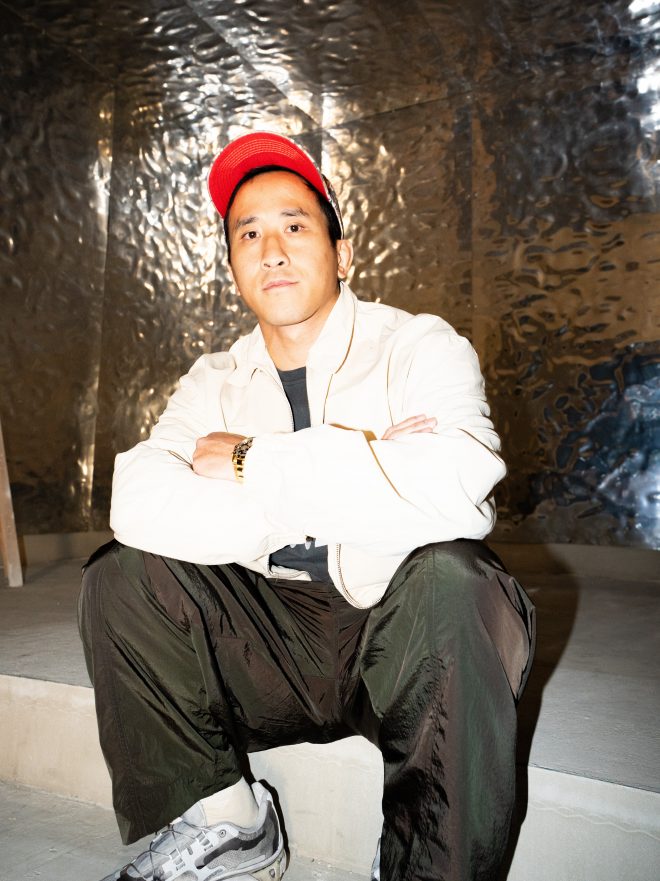FLORIAN PICASSO | DE 2025 #06
Florian picasso: legacy rewritten, frequencies reclaimed
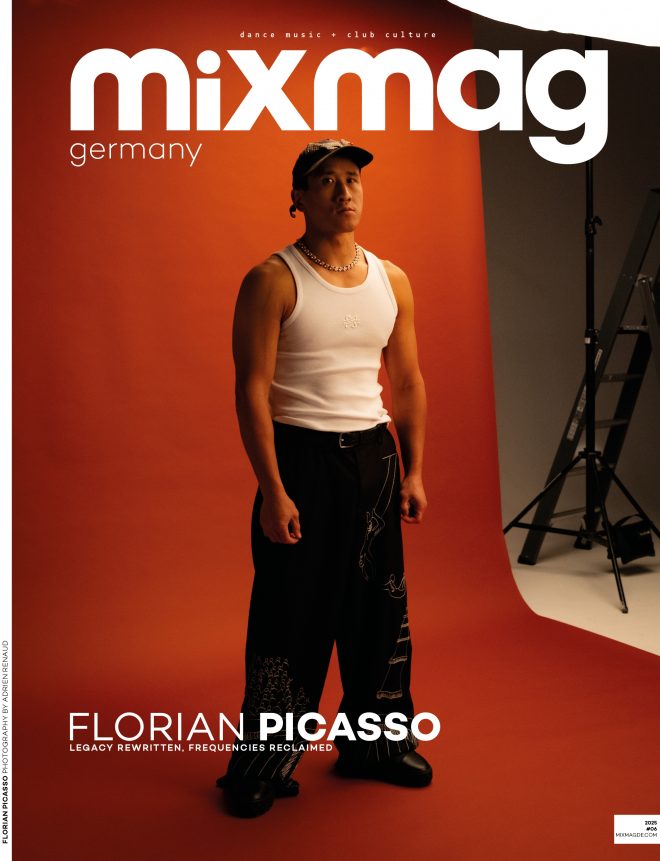
Shedding the ornamental excesses of commercial EDM, Picasso embarks on a journey not of reinvention for trend’s sake, but of ontological return — a recalibration of self through the medium of sound. The Picasso name, long tethered to a lineage of artistic innovation and cultural gravitas, is now a backdrop against which Florian paints a new personal mythology — one shaped as much by internal reckoning as by sonic liberation.
His recent body of work — anchored by the emotionally luminous “When I Saw U” and the genre-fluid Booty EP released on Diynamic — captures a threshold moment. These are not just tracks; they are effective artifacts, coded with the residue of a producer who has traded spectacle for intimacy, and surface-level bravado for textured sincerity.
Through Dekadence, his multidisciplinary platform, Picasso merges the ideological weight of countercultural movements with the aesthetics of high-art curation, creating a liminal space where underground electronic music intersects with fashion, philosophy, and political subtext.
This transformation is as intellectual as it is emotional. Picasso invokes the sociological frameworks of Bourdieu, the existential dualities of Nietzsche, and the structural elegance of techno to scaffold his new artistic identity. In doing so, he challenges binary conceptions of authenticity versus artifice, elite versus underground, and heritage versus autonomy. The result is an oeuvre in motion — messy, multidimensional, and radically honest — rooted in paradox and propelled by a desire to create work of enduring substance.
In this cover feature, Florian Picasso dissects the anatomy of his transformation: from navigating the symbolic weight of legacy to articulating a new cultural vision that resists commodification. It is a portrait not of an artist branding himself anew, but of one finally dismantling the frame — and in that act, reclaiming authorship over his narrative.
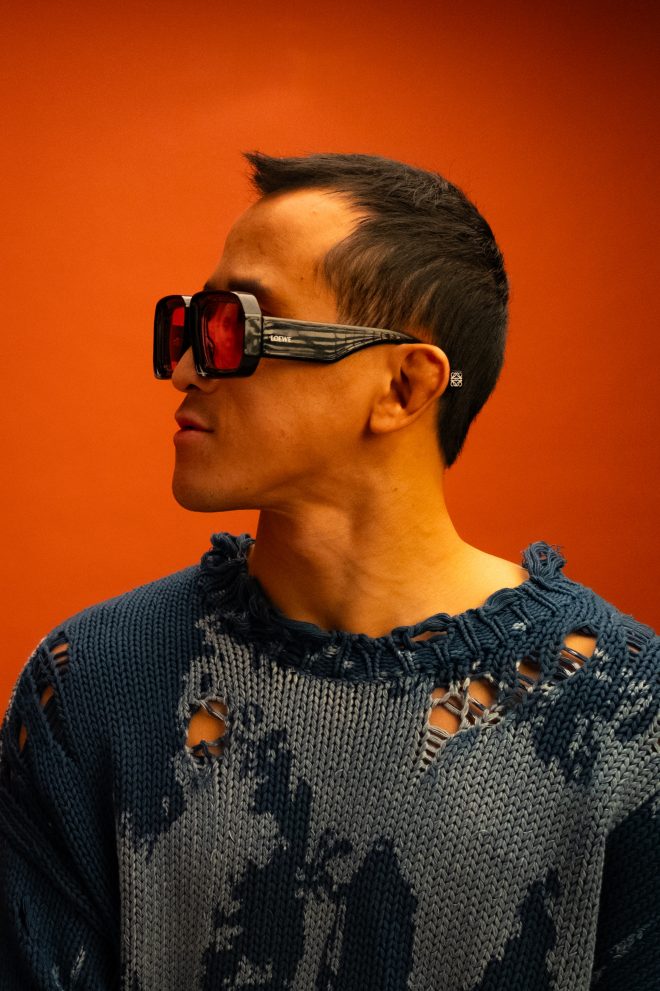
IDENTITY & PURPOSE
Known to many as the descendant of a name etched in art history, and to others as a former fixture of the EDM mainstage circuit, Picasso has now charted a new path — one guided not by spectacle or inheritance, but by sound as liberation.
The pivot didn’t arrive with fanfare — it emerged through disillusionment.
“The scene I was part of just didn’t vibe with who I was becoming,” Picasso confesses.
In a cultural moment where many artists double down on what's commercially safe, he chose instead to ask himself the most radical question of all: Why? The answer was unflinchingly honest — he no longer wanted to make music that filled a void. He wanted to create work that meant something.
“That’s what drew me to house and techno. These genres have real roots, real stories. They came from movements, from people pushing against the norm. That energy spoke to me.”
And so began a process of shedding, of unlearning the metrics of success handed down by algorithms, legacy, and expectation. In their place, Picasso has discovered a new framework, one that embraces vulnerability, paradox, and personal truth.
“Now it’s not about being some solo act on a giant stage,” he explains, “it’s about connection, community, and creating something real.”
This is not a calculated reinvention — it’s an emotional exhale, long overdue.
His latest release, When I Saw U, encapsulates this sentiment with elegant force. Positioned at the crossroads of hard dance and euphoric house, the track glows with unfiltered sincerity.
“Honestly, I never try to make a hit or stick to one genre, I just follow the vibe,” he admits.
“But this track feels special. It’s euphoric, super fun, and blends styles in a way that feels fresh.”
Beneath its peak-time energy lies a beating heart.
“At the heart, it’s a love song — cheesy maybe, but real. It reflects how I’m feeling right now: inspired, over the moon, and just on fire creatively.”
That openness is what defines Picasso’s current state. In conversation, there’s no pretense — only a desire to peel back layers. He speaks of identity with a maturity earned through contradiction. The Picasso name, he acknowledges, casts a long shadow.
“It’s a double-edged sword. People expect greatness, or they’re quick to judge. But I’m not trying to be Picasso, I’m just writing my own story.”
What makes this moment so poignant is that for the first time in his career, Picasso is no longer performing for others — not the crowd, not the industry, not his family name. He’s performing in alignment with himself.
“These days, I’m more intentional. I want to create things that make sense, that can last. For a while, I was just putting out music to fill a void, chasing the wrong things. Now, it’s about building a legacy on my terms, while still honoring the one I carry.”
This isn’t reinvention for reinvention’s sake — it’s resurrection. Sound has become a form of spiritual clarity, and club culture, a crucible for truth-telling. In house and techno, Picasso has found a refuge from hypervisibility — and in their grooves, a way to reframe not just how he is seen, but how he sees himself.
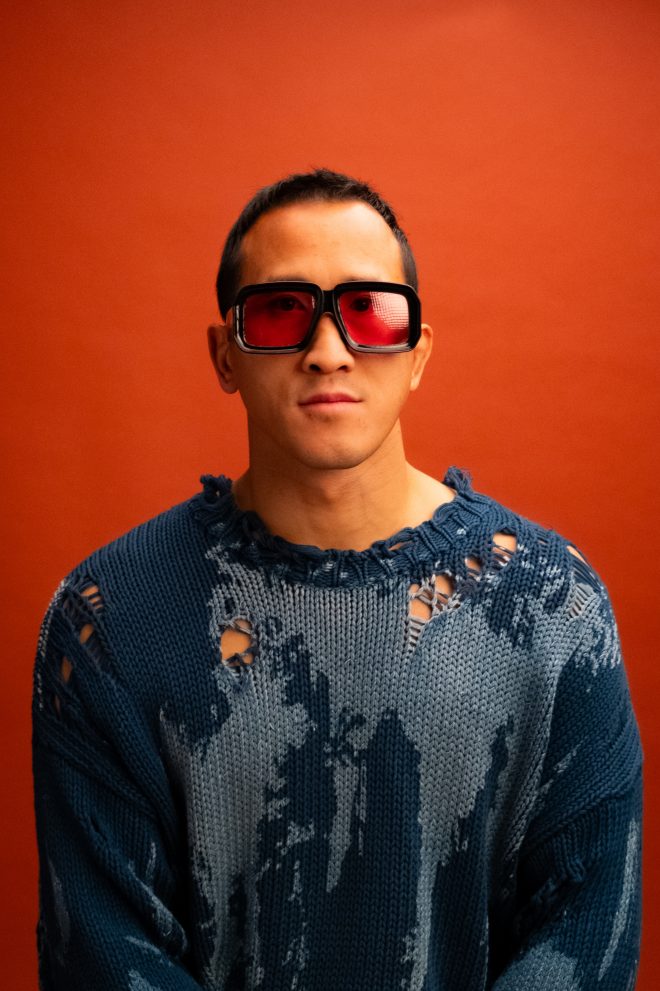
PARADOX AS PRACTICE, COMMUNITY AS CANVAS
What makes Florian Picasso’s recent trajectory so compelling is not simply the shift in sonic aesthetics but the philosophical infrastructure supporting it. Beneath the propulsive kicks and atmospheric pads lies a deeper inquiry into duality — into the chaos required for transcendence.
“I’m all about paradox – you need contrast to feel anything real,” he explains.
“Happiness exists because sadness does, just like in music: it can’t be flat, it has to move and evolve. Like Nietzsche said, ‘One must still have chaos in oneself to give birth to a dancing star.’”
His productions oscillate between softness and tension, sensuality and structure, creating a dynamic sonic language that resists static interpretation.
“One day it’s heavy and intense, the next it’s euphoric and light — but always true to the same vision. Life isn’t static, and neither is my music.”
In a time when digital culture often demands coherence to the point of homogeneity, Picasso leans into contradiction as his creative engine, embracing emotional ambiguity not as a flaw, but as a form of truth.
This ethos finds an extended manifestation in Dekadence, Picasso’s boundary-pushing platform that has matured from artist collective to full-blown cultural movement. At its core, Dekadence is not simply a brand or event series — it is a provocation, a statement against stagnation.
“Dekadence has always been about pushing boundaries — musically, artistically, and culturally,” he says.
“We’re not here to follow trends or chase headliners. We’re building something unique, inclusive, and creatively driven.”
There’s a quiet radicalism in this approach — one that values curation as a form of activism. In an industry increasingly commodified by algorithmic taste and commercial sameness, Picasso and his collaborators are carving out space for the raw, the innovative, and the overlooked. Dekadence functions not just as a party, but as a cultural apparatus.
“Dekadence curates experiences that go beyond the club and into broader cultural contexts.”
That same spirit fuels DKD Records, the imprint now serving as the label arm of Dekadence. Here, Picasso assumes the role of curator, not gatekeeper — an important distinction.
“As a creative curator, I’m building a community that thrives on collaboration and creative freedom,” he explains.
“It’s about bringing people together who push boundaries and inspire each other, creating a space where innovation and artistic expression can truly flourish.”
In this model, the label becomes less of a distribution channel and more of a living organism — one animated by vision, nurtured by trust, and sustained by mutual respect.
What’s particularly fascinating is the range of cultural spaces Picasso now inhabits — from dimly lit Berlin basements to collaborations with high-luxury houses like Patek Philippe. For some, these might seem like incompatible worlds. But Picasso, ever the contrarian, sees deep resonance between them.
“I see no contradiction between luxury and the underground scene,” he says. “Both are rooted in craftsmanship, storytelling, and identity.”
Citing Bourdieu’s notion of cultural capital, he reframes luxury not as elitism, but as narrative depth — a kind of aesthetic intelligence that transcends class signaling.
“When I’m working with a brand like Patek Philippe, it’s not about status — it's about timeless artistry, detail, and heritage. That same care exists in underground culture, just expressed differently, through rawness, risk-taking, and authenticity.”
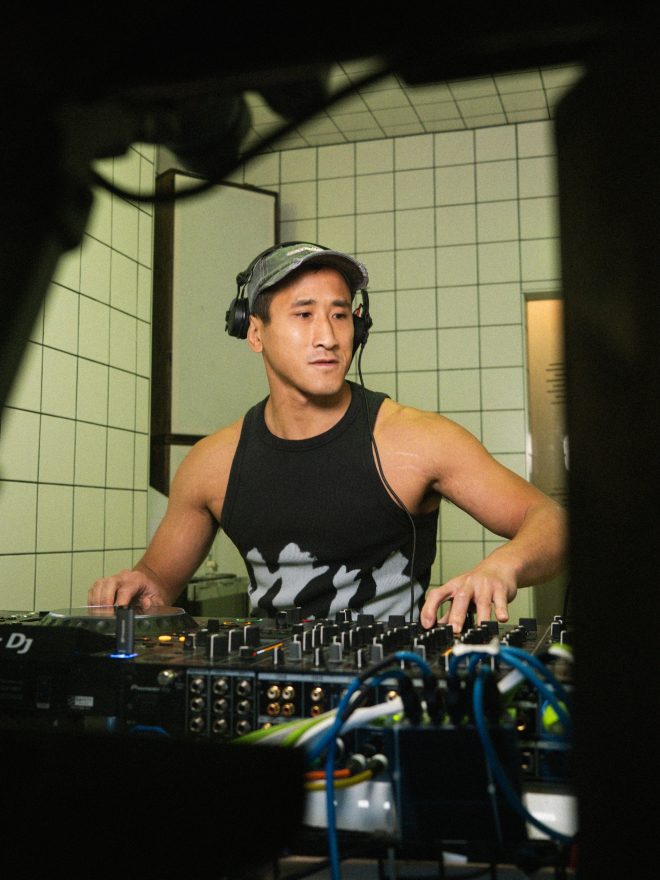
In bridging these contexts, Picasso does something few artists dare attempt: he collapses the false binary between the avant-garde and the refined, the underground and the institutional, showing us that integrity, like creativity, is not determined by context, but by consciousness.
Florian Picasso’s Booty EP, released on Solomun’s Diynamic label, is more than a sonic detour — it’s an emancipation. For an artist long associated with polished production and the legacy of one of the most iconic surnames in art history, this release marks a shedding of constraints, a pivot toward self-defined terrain.
“The Booty EP represents freedom to me. A year ago, I decided to follow my creative vision — no compromises, no boxes.”
That decision wasn’t met with universal encouragement. Critics questioned the shift, doubted the direction. But Picasso was unmoved.
“People doubted it, but this project is proof that you can have direction without limiting yourself.” The resulting EP — composed of “Til I’m Dead,” “Karaoke Corner,” and the playful yet punchy title track “Booty” — doesn’t just defy genre boundaries; it obliterates them.
Each track reflects a different fragment of his evolving identity. “Til I’m Dead” dives headfirst into raw, unfiltered acid house. “Karaoke Corner” pulses with bass-heavy swagger, bringing a grin to even the most stoic dancer. And “Booty,” his personal favorite, anchors the whole release in joy—cheeky, liberated, and undeniably fun.
“It shows I can explore different genres and still stay true to my path. That balance isn’t easy, but this EP makes it real.”
To land such a record on Diynamic — a label renowned for its curation and artistic credibility — is no small feat. But for Picasso, it’s more than a professional milestone. It’s an artistic confirmation.
“It’s an honor to release this on a label like Diynamic and to have Solomun’s support behind the tracks,” he says.
“That kind of recognition is so motivating, and I’m excited to keep pushing the boundaries of my sound.”
With a new release on Paul Oakenfold’s Perfecto label arriving in July, it’s clear this trajectory is far from fleeting — it’s only gaining momentum.
But the evolution is not just heard — it’s felt, especially in the booth. For Picasso, DJing was never just performance; it was processing, healing, and conversation.
“I was fortunate to start young and truly learn the craft of DJing — from reading a crowd to the art of crate digging. Those foundations shaped my approach.”
And while the clubs have changed, so has his relationship to the decks. What once was spectacle is now communion.
“In EDM, the experience often felt like a one-way journey — my narrative, my stage,” he explains.
“Now, it feels collective. I’m not performing at people; we’re experiencing something together.”
Gone are the vast LED walls and overblown visuals. In their place: sweat, closeness, and mutual release.
“Today, it’s back to the essence: low ceilings, proximity, sweat, and shared energy. That’s where the magic is.”
This return to the visceral has reawakened his creative process, extending even into how he imagines his life in metaphor. When asked what this chapter would look like as a painting, Picasso doesn’t hesitate.
“It’d be big, loud, and full of bright pastels — think pinks, blues, yellows, all clashing and blending. Lots of texture, messy brush strokes, but full of life and movement.”
He imagines something between Basquiat and Rothko — layered, chaotic, alive. He smiles and adds:
“I’d call it ‘Unframed’ because right now, I feel like I’ve stepped outside the box and finally got to create without borders.”
Booty EP is not just a musical release — it’s a symbol of unframing, of re-entering the dancefloor (and the self) without inherited scripts. In a world where so many artists are boxed in by algorithms, legacy, or expectation, Florian Picasso has chosen risk, texture, and breath. He has chosen freedom — and that, more than any drop or hook, is what makes this release so electrifying.
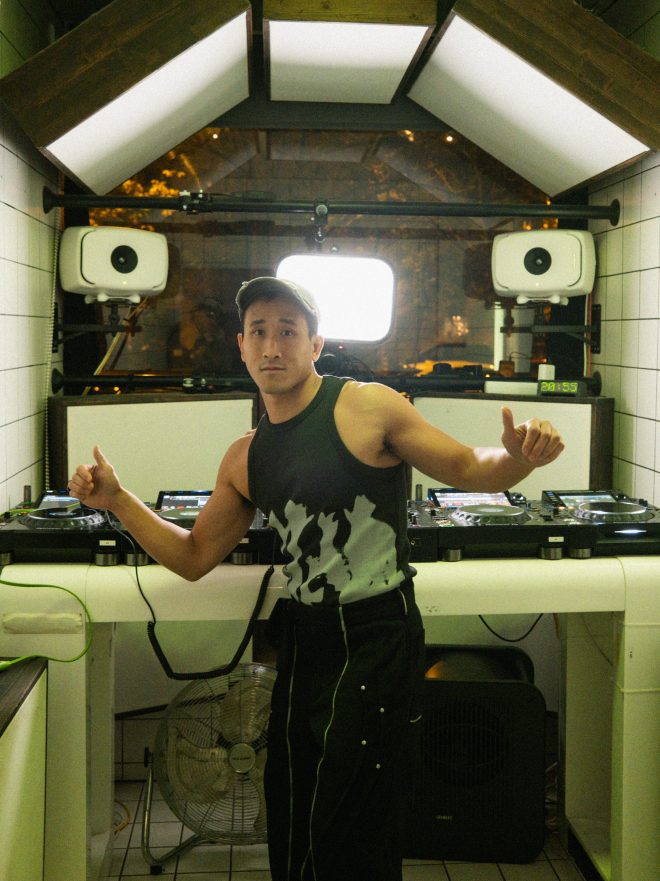
MY THOUGHTS
There’s a quiet kind of rebellion in choosing depth over dominance, connection over control. In an industry that often rewards consistency more than courage, Florian Picasso has stepped into uncertainty with remarkable clarity, not just changing his sound, but changing the space in which that sound lives. The result is not a rebrand, but a rebirth: textured, unapologetic, and unbound by the expectations of lineage, genre, or market.
What makes this evolution particularly compelling is that it’s not performative — it’s personal. These tracks, platforms, and performances are not just career milestones; they are emotional records, archived in basslines and brush strokes. From the raw vitality of Booty EP to the intimate transformation of his DJ sets, Picasso is creating not from a place of legacy, but from a place of lived experience — and that distinction makes all the difference.
And yet, even in this moment of freedom, there is discipline. Every shift is intentional— a curatorial eye guiding the work not just toward expression, but toward meaning. He’s not escaping structure; he’s choosing his architecture. The house he’s building — with Dekadence, DKD Records, and his evolving sound — is one where paradox can live, where joy and chaos, philosophy and fun, history and future all pulse under the same roof.
Florian Picasso calls this chapter Unframed — a title that doesn’t just describe where he is, but invites others to meet him there. Outside the box. Beyond the blueprint. In the raw space of becoming, where art is not inherited but earned, and where the beat doesn’t just drop — it liberates.
